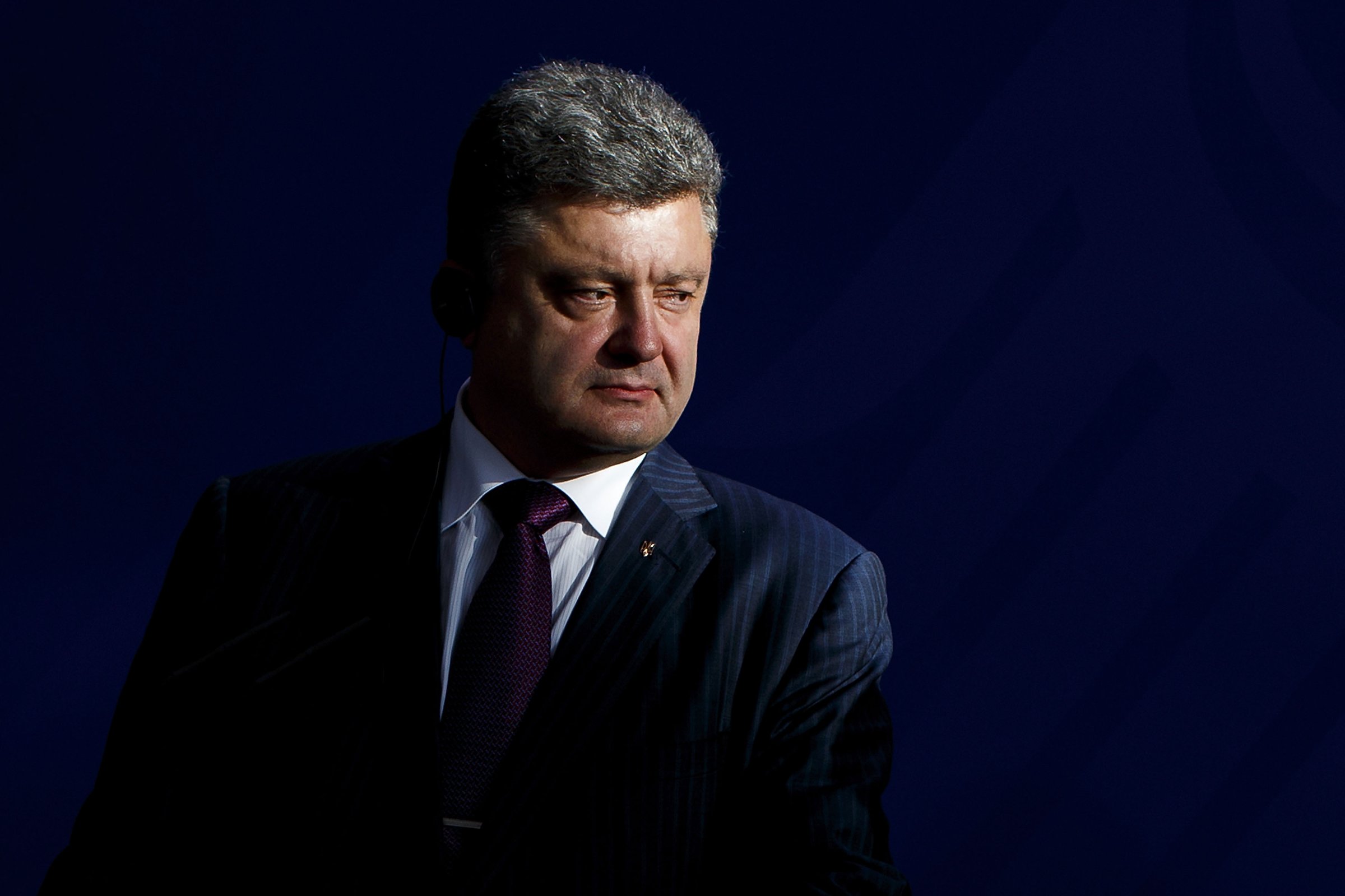
Ukraine’s new President Petro Poroshenko wants to see Russia punished for what he calls the “tragedy” that befell his country this year. But even as Russia has annexed one region of Ukraine and encouraged a violent rebellion in two others, Ukraine does not have the option of breaking off ties with the Kremlin, Poroshenko told TIME in his first interview since taking office. His government has no choice but to seek “an understanding” with Russia, he says, even if for no other reason than the hard reality of Ukraine’s geography.
“Maybe some Ukrainians would like to have Sweden or Canada for a neighbor, but we have Russia,” he said on Monday inside the Presidential Administration Building in Kiev, fidgeting with a set of rosary beads throughout the interview. “So we can’t talk about a firm sense of security without a dialogue and an understanding with Russia.” That is why Poroshenko spent the first full day of his tenure on Sunday in marathon talks with the Russian ambassador to Ukraine, Mikhail Zurabov. Their positions remain miles apart, at best leaving Poroshenko room for “cautious optimism” for restoring civil relations with Russia, he said.
But whatever progress they will make toward a cease-fire between the Ukrainian military and pro-Russian rebels in the regions of Donetsk and Luhansk, Poroshenko has no intention of making nice with Russian President Vladimir Putin. “To be honest, I’m not very interested in what Citizen Putin thinks of my state,” he said. If the Russian leader doubts Ukraine’s right to exist within its current borders, the best way to convince him otherwise is to build a powerful army and a thriving economy, Poroshenko said. “No one would allow himself to doubt the existence of small countries like Singapore,” the Ukrainian President said, “because when a country is strong, effective, comfortable, monolithic, such doubts would never enter anyone’s minds.”
Achieving that will require support from the West, he told TIME, not least of all the kind of military aid that he has been requesting. “We’re talking about assistance that will be able to stop this aggression” from Russia, he said of his discussions last week and this weekend with U.S. and European leaders. “The help can take all kinds of forms, from intelligence to military technology, from blocking our airspace to enforcing a maritime blockade” in case of attack.
Poroshenko said he discussed these kinds of support last week with U.S. President Barack Obama, and brought it up again with Vice President Joe Biden, who attended Poroshenko’s inauguration on Saturday. But no Western nation has agreed to provide any security guarantees to Ukraine, nor have they made any firm pledges to renew the so-called Budapest Memorandum, the 1994 agreement between the U.S., Russia and the U.K. that was supposed to guarantee Ukraine’s territorial integrity.
With the annexation of Crimea in March, Russia violated that agreement, and Poroshenko has since become convinced that even the U.N. Security Council is no longer capable of preventing conflict between major powers. “When one of the veto-holding members of the U.N. Security Council has in effect become an aggressor, that shows that the old system isn’t working,” he said. This argument came up in his talks with Western leaders last weekend in France, and he said they agreed “without question” about the need for the “global security architecture” to be revised. “The struggle for Crimea is a struggle to prevent such precedents from repeating themselves in the future,” he said. “We can’t allow unpunished aggression.”
But punishing Russia is not an option for Poroshenko at this point. The best he can do is to build a military that can prevent a future Russian attack and, at the same time, stay at the negotiating table with the country he calls an aggressor. His goals are modest. Apart from stopping the bloodshed in eastern Ukraine, he wants Russia to offer a new “model of behavior, a model of guarantees” that would restore a sense of stability. So far, he doesn’t have anything close.
More Must-Reads from TIME
- Inside Elon Musk’s War on Washington
- Meet the 2025 Women of the Year
- The Harsh Truth About Disability Inclusion
- Why Do More Young Adults Have Cancer?
- Colman Domingo Leads With Radical Love
- How to Get Better at Doing Things Alone
- Cecily Strong on Goober the Clown
- Column: The Rise of America’s Broligarchy
Contact us at letters@time.com